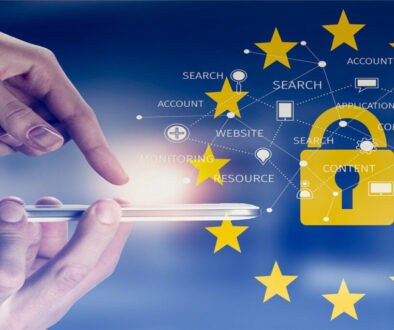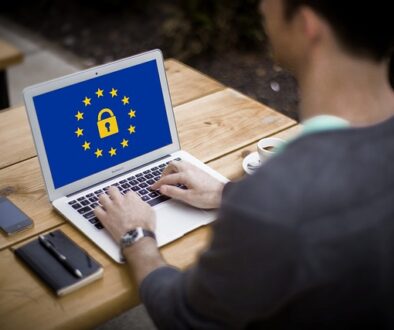Data protection day: history and meaning
Data Protection Day, also known as Data Privacy Day, is an annual observance dedicated to raising awareness about the importance of safeguarding personal information and promoting data privacy rights. It serves as a reminder for individuals, organizations, and governments to prioritize the protection of sensitive data in an increasingly digital and interconnected world. This day holds significance in the history and evolution of data protection laws, which aim to regulate the collection, storage, and use of personal data. With the ever-growing threat of data breaches and cybersecurity attacks, Data Protection Day serves as a catalyst for promoting best practices in data security and encouraging individuals to take proactive measures to protect their privacy in the digital age.
History of Data Protection Day
Data Protection Day, also known as Data Privacy Day, has its roots in the Council of Europe’s Data Protection Convention. The convention, also referred to as Convention 108, was adopted on January 28, 1981, and established the first international framework for the protection of personal data. In honor of this milestone, Data Protection Day was first celebrated on January 28, 2007. The initiative was spearheaded by the Council of Europe and later embraced by the United States and other countries. Since then, Data Protection Day has been observed annually on January 28 to raise awareness about data protection and promote privacy rights in the digital age.
Significance and meaning of Data Protection Day
Data Protection Day holds great significance in today’s digital world, where personal data is constantly being shared and stored. It serves as a reminder of the importance of safeguarding sensitive information and protecting individuals’ privacy rights. This annual observance raises awareness about the risks associated with data breaches and the need for robust data protection measures. It also emphasizes the responsibility of organizations and governments to establish and enforce adequate data protection laws and regulations. Data Protection Day is a platform for educating individuals about their rights and promoting best practices for data privacy. By highlighting the significance of data protection, this day encourages individuals and entities to take proactive steps to ensure the security of personal information.
The Origins
The origins of Data Protection Day can be traced back to the Council of Europe’s Data Protection Convention 108, which was adopted in 1981. This convention sought to establish a framework for the protection of individuals’ personal data and promote international cooperation in this regard. The principles outlined in Convention 108 influenced the European Union’s Data Protection Directive, which was introduced in 1995. This directive laid the foundation for data protection laws and regulations in EU member states. Over the years, there has been a growing recognition of the importance of data protection worldwide, leading to the adoption of the General Data Protection Regulation (GDPR) in 2018. These legislative developments have paved the way for the international recognition and observance of Data Protection Day.
The Council of Europe’s Data Protection Convention 108
The Council of Europe’s Data Protection Convention 108, adopted in 1981, is a crucial milestone in the history of data protection. This convention established a framework for the protection of individuals’ personal data and aimed to promote international cooperation in this domain. Convention 108 outlined key principles for data protection, such as the fair and lawful processing of data, individuals’ rights to access and rectify their personal information, and the need for safeguards against unauthorized access or disclosure. It laid the foundation for the development of data protection laws in countries across Europe and influenced subsequent international data protection regulations. The implementation of the principles in Convention 108 has paved the way for the protection of personal data and the recognition of Data Protection Day.
Influence of the European Union’s Data Protection Directive
The European Union’s Data Protection Directive, adopted in 1995, significantly influenced the development of data protection laws across Europe. This directive aimed to harmonize data protection regulations within the EU member states and ensure the free flow of personal data within the Union. It introduced key principles and rights, including the requirement for data controllers to obtain individuals’ consent for processing their data, the allowance for data transfers to third countries only with adequate levels of protection, and the establishment of data protection authorities in each member state. The directive played a crucial role in shaping national data protection laws and paved the way for the more comprehensive General Data Protection Regulation (GDPR) adopted in 2016.
The Evolution
The evolution of data protection regulations has been marked by significant developments over the years. One such milestone was the adoption of the General Data Protection Regulation (GDPR) by the European Union in 2016. The GDPR strengthened and modernized data protection laws, introducing stricter requirements for organizations handling personal data. It gave individuals greater control over their data, including the right to be forgotten and the right to data portability. Furthermore, the GDPR imposed substantial fines for non-compliance, making data protection a top priority for businesses and institutions worldwide. The international recognition of Data Protection Day has also contributed to the evolution of data protection, raising awareness and fostering conversations about the importance of safeguarding personal information.
Adoption of the General Data Protection Regulation (GDPR)
The General Data Protection Regulation (GDPR) was adopted by the European Union in 2016, marking a significant milestone in the evolution of data protection regulations. The GDPR replaced outdated data protection laws and introduced stricter requirements for organizations handling personal data. It aimed to enhance individuals’ control over their data by granting them rights such as the right to be forgotten and the right to data portability. The GDPR also imposed substantial fines for non-compliance, which made data protection a top priority for businesses and institutions worldwide. Its adoption revolutionized data protection practices, driving organizations to implement stringent measures to ensure the privacy and security of personal information.
International recognition of Data Protection Day
Data Protection Day has gained international recognition and is observed by organizations and countries around the world. Many countries have established their own version of Data Protection Day to raise awareness about the importance of data privacy and protection. The European Union, where the General Data Protection Regulation (GDPR) was implemented, plays a significant role in spreading awareness and advocating for data protection measures globally. International organizations, such as the United Nations and the International Organization for Standardization, also promote data protection through guidelines, standards, and initiatives. Data Protection Day serves as a reminder for governments, businesses, and individuals to prioritize data privacy and take steps to ensure the security and protection of personal information.
Importance of Data Protection
Data protection is of utmost importance in today’s digital age. Safeguarding personal data rights and privacy is crucial for individuals, as it prevents unauthorized access and misuse of sensitive information. Data breaches can lead to identity theft, financial fraud, and other malicious activities. By implementing strong data protection measures, individuals can maintain control over their personal information and ensure its confidentiality.
At an organizational level, data protection is vital for maintaining trust and credibility with customers and stakeholders. Compliance with data protection regulations demonstrates a commitment to ethical business practices and responsible handling of data. Preventing data breaches and cybersecurity threats not only safeguards sensitive information but also protects an organization’s reputation and financial stability.
Overall, data protection plays a critical role in maintaining the integrity and security of personal and organizational information, ensuring privacy rights are respected, and mitigating the risks associated with data breaches.
Protecting personal data rights and privacy
Protecting personal data rights and privacy is essential in today’s digital era. Individuals have the right to control and safeguard their personal information from unauthorized access and misuse. Data protection measures, such as encryption, secure storage, and access controls, are crucial in ensuring the confidentiality and integrity of personal data. Individuals should also be aware of their rights under data protection laws, such as the right to access and correct their data, as well as the right to be forgotten in certain circumstances. By being proactive in protecting personal data, individuals can maintain their privacy and reduce the risk of identity theft, fraud, and other malicious activities.
Preventing data breaches and cybersecurity threats
Data breaches and cybersecurity threats pose significant risks to personal data and privacy. Organizations must implement robust security measures to prevent unauthorized access and protect against malicious attacks. This includes encrypting data, regularly updating security protocols, and implementing strong authentication measures.
Additionally, individuals play a crucial role in preventing data breaches. They should be vigilant in safeguarding personal information by using strong passwords, being cautious of phishing attempts, and regularly reviewing privacy settings on online platforms. Regularly updating software and operating systems is also essential to minimize vulnerabilities.
Education and awareness about cybersecurity best practices are vital in preventing data breaches and minimizing the impact of potential threats. By staying informed and proactive, individuals and organizations can work together to protect personal data and maintain privacy.
Celebrating Data Protection Day
Data Protection Day is celebrated annually on January 28th to raise awareness about the importance of data protection and privacy. On this day, organizations and individuals come together to promote best practices in safeguarding personal information.
Various awareness campaigns and events are organized worldwide to educate people about cybersecurity threats and empower them with the knowledge to protect their data. These activities include workshops, seminars, webinars, and panel discussions.
Individuals can actively participate in Data Protection Day by reviewing their privacy settings on online platforms, using strong passwords, and being cautious of phishing attempts. It is also a good opportunity to update software and operating systems to ensure they have the latest security patches. By celebrating Data Protection Day, we emphasize the significance of data protection and collective efforts in maintaining privacy.
Awareness campaigns and events
Awareness campaigns and events play a crucial role in promoting data protection and privacy on Data Protection Day. Organizations and individuals come together to educate people about cybersecurity threats and best practices for safeguarding personal information. These campaigns can take various forms such as workshops, seminars, webinars, and panel discussions. They aim to provide knowledge and tools to individuals to enhance their understanding and implementation of data protection measures. These events also serve as platforms for experts to share their insights and experiences, raising awareness about the importance of protecting sensitive data. By actively participating in these campaigns and events, individuals can contribute to creating a more secure and privacy-conscious digital environment.
Actions individuals can take to protect their data
Individuals can play an active role in protecting their data by implementing various measures. Here are some actions they can take to safeguard their personal information:
- Use strong and unique passwords: Create complex passwords, avoid using the same password for multiple accounts, and change them regularly.
- Enable two-factor authentication: Add an extra layer of security by enabling two-factor authentication for accounts whenever possible.
- Be cautious with sharing personal information: Avoid sharing sensitive data, such as financial information or social security numbers, unless necessary.
- Regularly update software and devices: Keep software, apps, and devices up to date to ensure they have the latest security patches and protections.
- Be mindful of phishing attempts: Beware of suspicious emails, messages, or calls requesting personal information and avoid clicking on unknown links.
- Back up important data: Regularly backup important files and information to a secure location to prevent data loss in case of a breach.
- Limit information shared on social media: Be mindful of the information shared on social media platforms and adjust privacy settings to control who can access and view personal data.
By implementing these actions, individuals can significantly enhance their data security and protect their personal information from unauthorized access and misuse.
Conclusion
In conclusion, Data Protection Day serves as a reminder of the importance of safeguarding personal information in an increasingly digital world. With the evolution of technology and the constant threat of data breaches, protecting data rights and privacy has become crucial. The adoption of regulations like GDPR has provided a framework for data protection, but more efforts are needed to stay ahead of evolving cybersecurity threats. Celebrating Data Protection Day through awareness campaigns and individual actions can help in promoting a culture of data security. Looking towards the future, it is essential to continue strengthening data protection measures and staying vigilant to ensure the privacy and security of sensitive information.
Looking towards the future of data protection
Looking towards the future of data protection, it is evident that the landscape will continue to evolve and present new challenges. With advancements in technology such as artificial intelligence and the Internet of Things, data protection measures will need to adapt to safeguard personal information effectively. Additionally, the increasing prevalence of data breaches and cyberattacks highlights the need for continuous improvement in cybersecurity practices. Collaboration between governments, organizations, and individuals will play a vital role in developing stronger data protection frameworks. It is essential to promote a culture of data security, emphasizing the importance of privacy and responsible data handling. By staying ahead of emerging threats and embracing proactive measures, the future of data protection can be better secured for the benefit of individuals and society as a whole.
Continued efforts in safeguarding sensitive information
Continued efforts in safeguarding sensitive information: Organizations and governments worldwide are making continuous efforts to enhance data protection and ensure the safety of sensitive information. This includes implementing stronger cybersecurity measures, investing in advanced technologies, and promoting data privacy awareness. Improved encryption techniques, multi-factor authentication, and regular security assessments are increasingly being adopted to protect against data breaches. Additionally, organizations are providing training and awareness programs to educate employees about the importance of data protection and responsible data handling. Collaborative initiatives between public and private sectors are also being undertaken to address emerging cybersecurity threats and develop effective data protection frameworks. It is crucial to stay vigilant, adapt to evolving risks, and prioritize the safeguarding of sensitive information to ensure a secure digital future.



